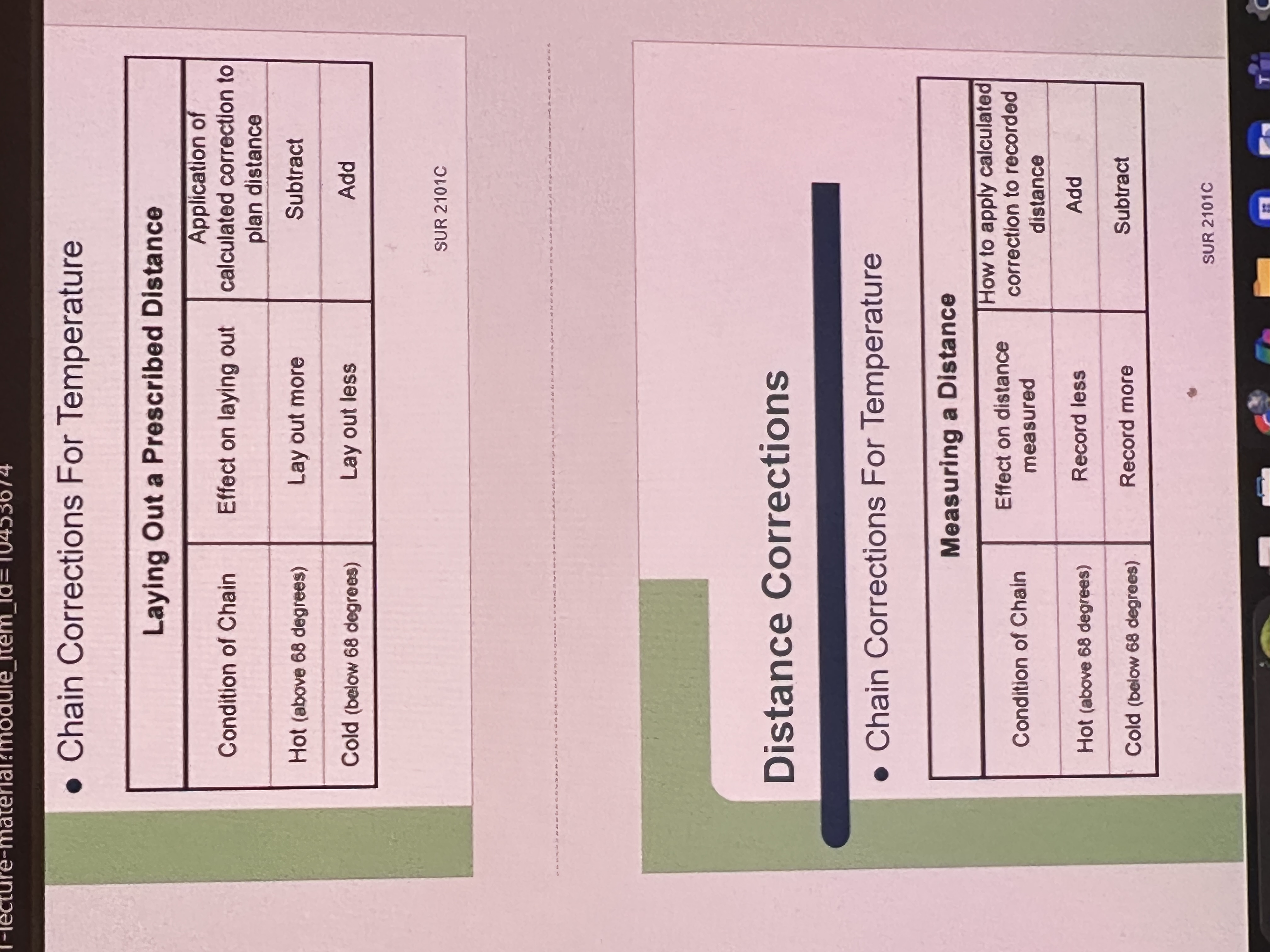Surveying Module 1 - Distance Measuring
1/15
There's no tags or description
Looks like no tags are added yet.
Name | Mastery | Learn | Test | Matching | Spaced |
|---|
No study sessions yet.
16 Terms
Chaining Equipment
Hundred foot steel tape
Chain pins standard set of 11 pins
Wooden steaks
Hand level
Range poles
Plum bobs
Chaining on level ground - 6 Steps
Lining in
Applying tension
Measuring horizontally
Marking tape lengths
Reading the tape
Recording the distance
Training on level ground - lining in
The shortest distance between two points is a straight line
Mark Beginning and end points using range poles
Mark intermediate points if necessary
Maintain proper alignment
Chaining on level ground - Applying tension
Chain must be pulled tight to achieve the precision expected
Exact tension varies with chain being used
Typical chain used in construction 20 to 25 pounds of tension
Remember to pull hard
chaining on level ground - Measuring horizontally
Distance shown on plan view of plans are horizontal unless noted otherwise
When chaining distances shall be laid out horizontally
Use a slight level to determine where horizontal is
Use the plumb bob to plum down to the point
Chaining on level ground - Marking tape lengths
Rear chain - when the end of the chain is over the point, resist the tension being applied and yells good or Mark
Head chain - applies tension identifies the spot on the ground that marks the end of the chain and places chaining pin
Chaining on level ground - Reading the tape
possibly the greatest source of error in training is that the users are not familiar with the chain where is zero?
Always examine a chain closely before using it
Forget about reading feet and inches the engineering chain is graduated in feet 10 and hundreds
Chaining on Level Ground - Recording the distance
Accurate fieldwork may be cancelled by a careless recording
After the partial length is obtained at the end of a line, determine the number of full 100 feet tap lengths by counting the pins collected
Measure all distances twice forward and back
Mistakes and Errors in Chaining
Common mistakes
Chain not horizontal
Reading the tape incorrectly
Miscounting the number of full tape length
Transposing figures
Measuring conditions
Measuring a distance refers to checking the distance of two points already existing in the ground
Laying out refers to setting points at a prescribed distance taken from the plans or from calculations
Distance corrections chain corrections for length
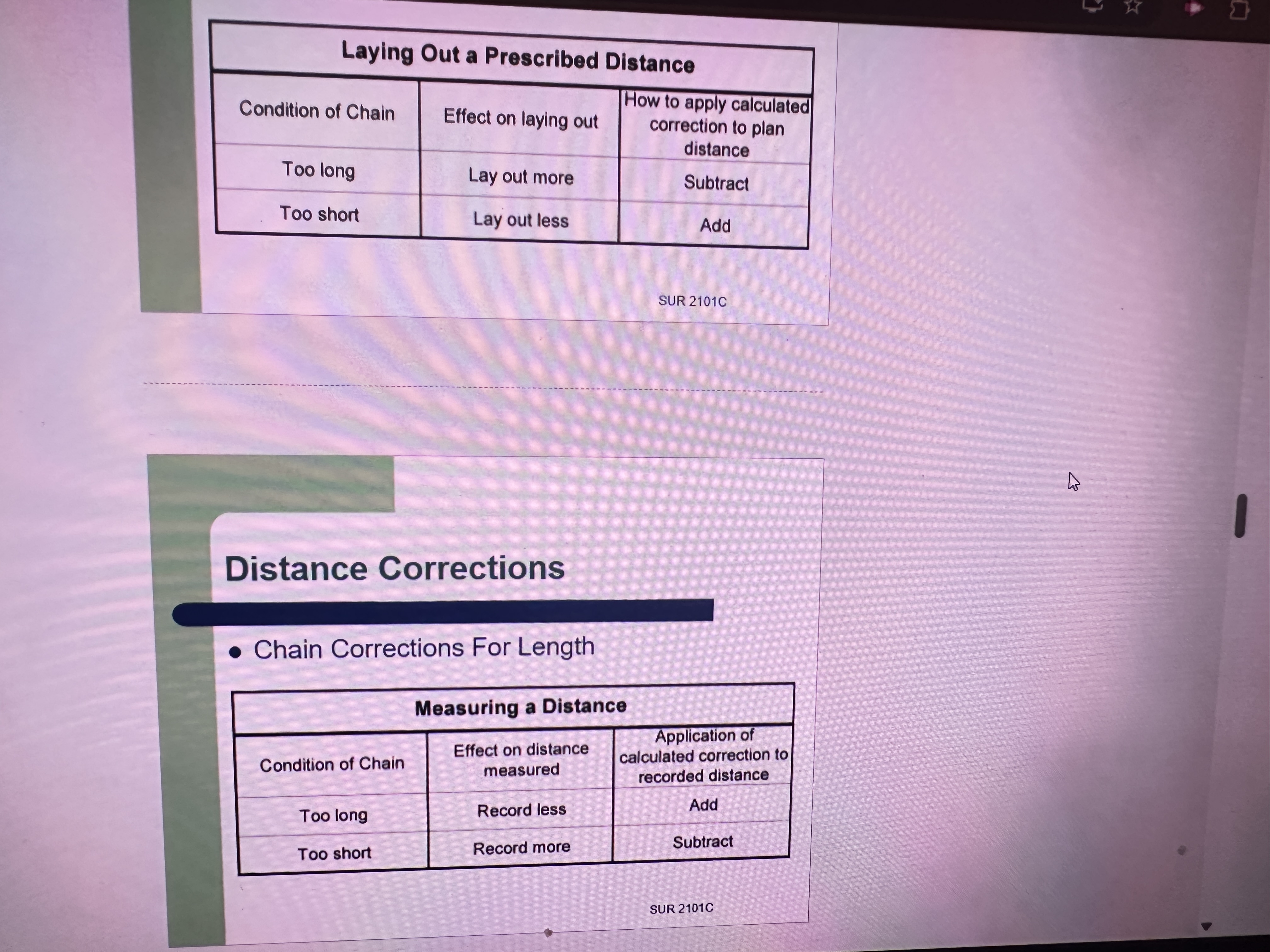
Distance corrections, slope corrections
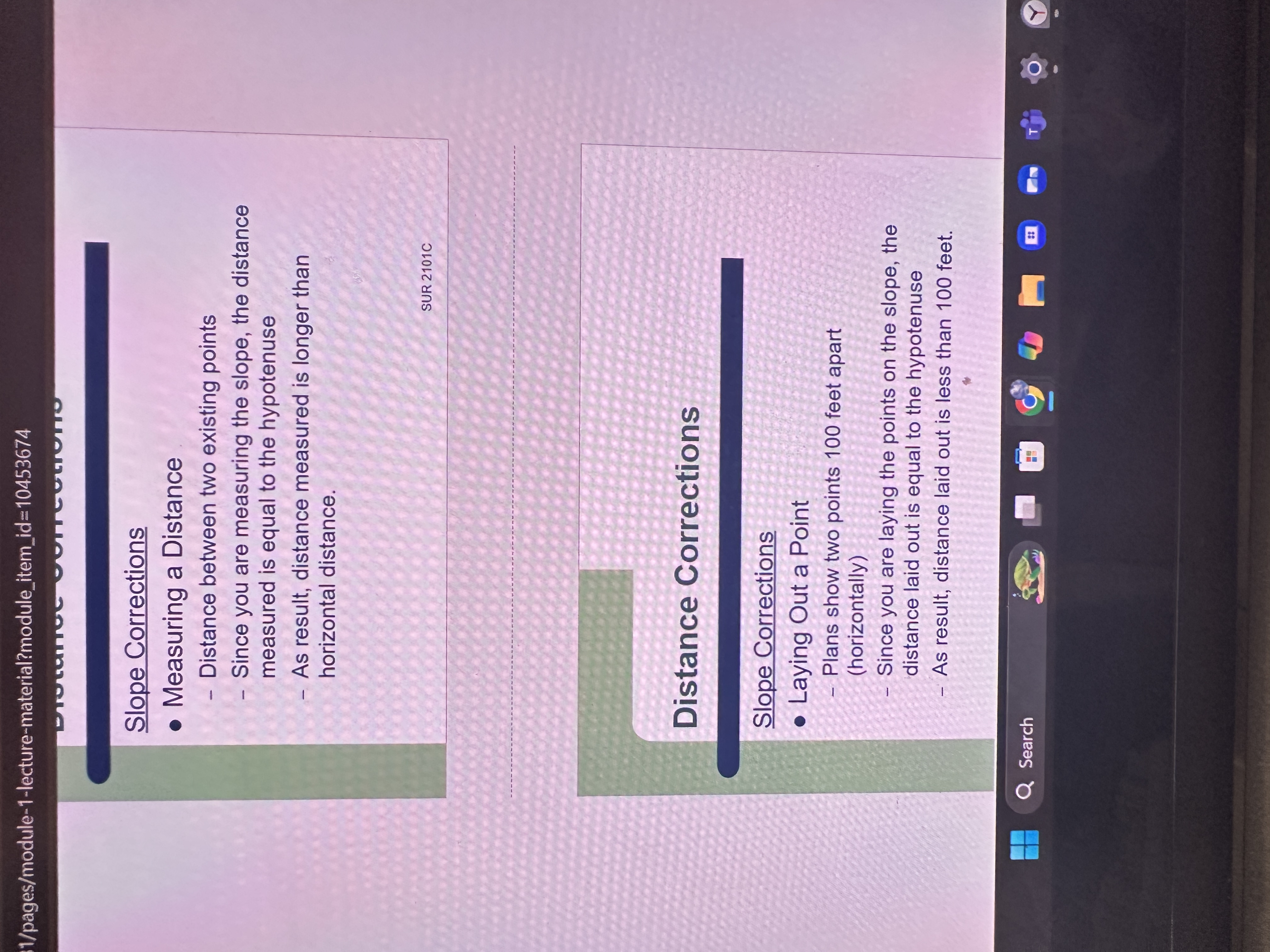
Slope correction formula
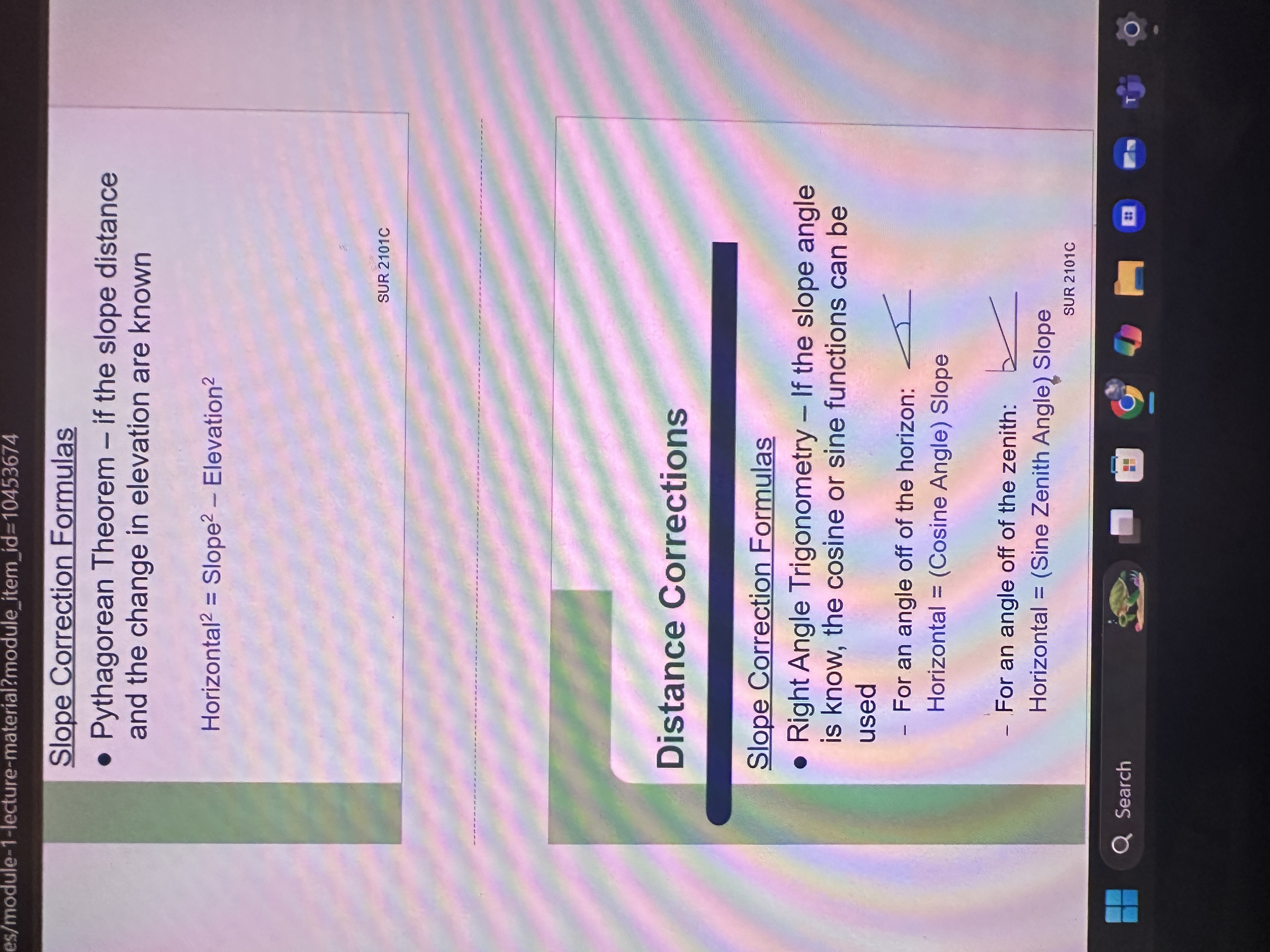
Chain correction for slope
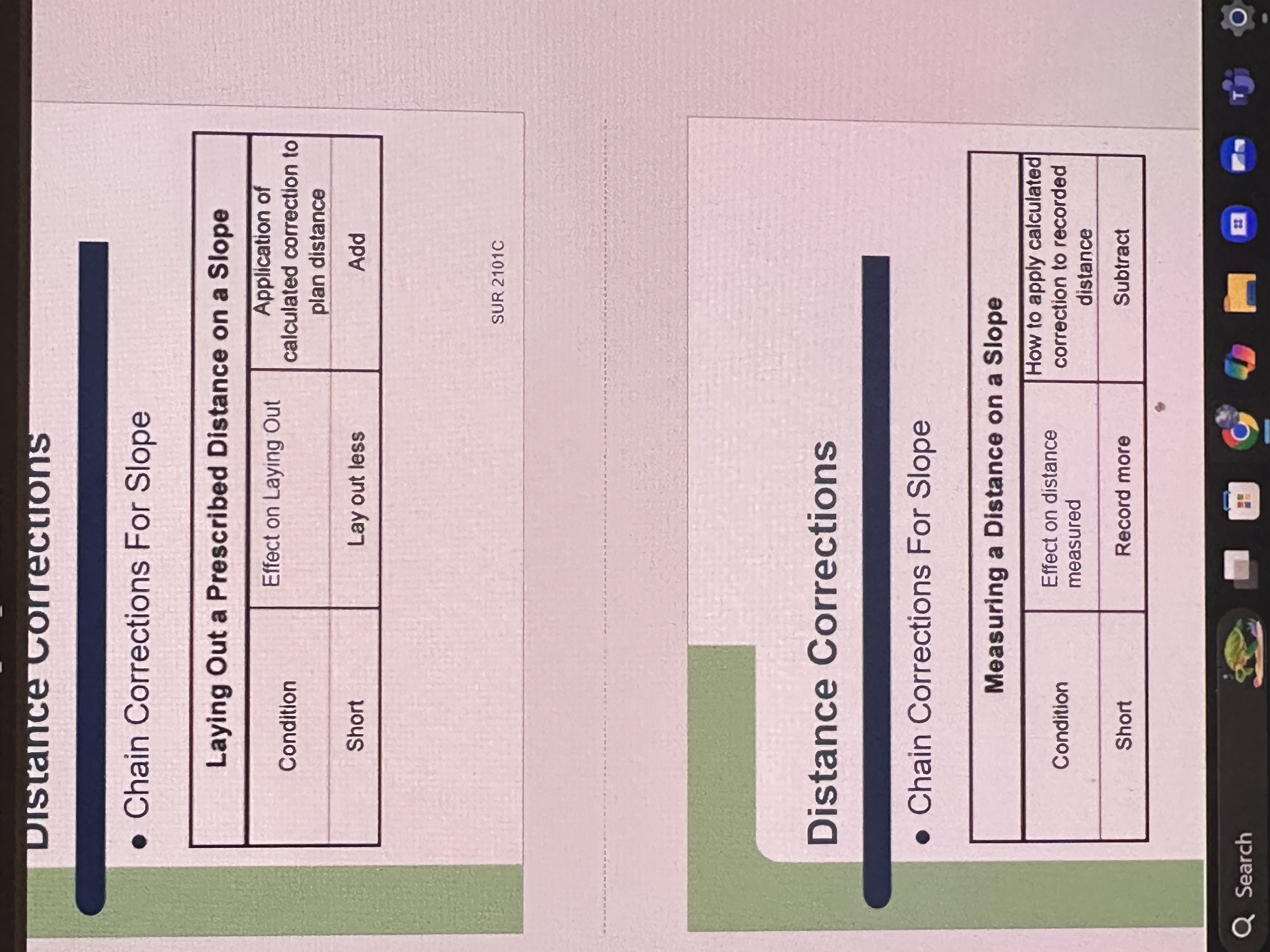
Chain correction for temperature
